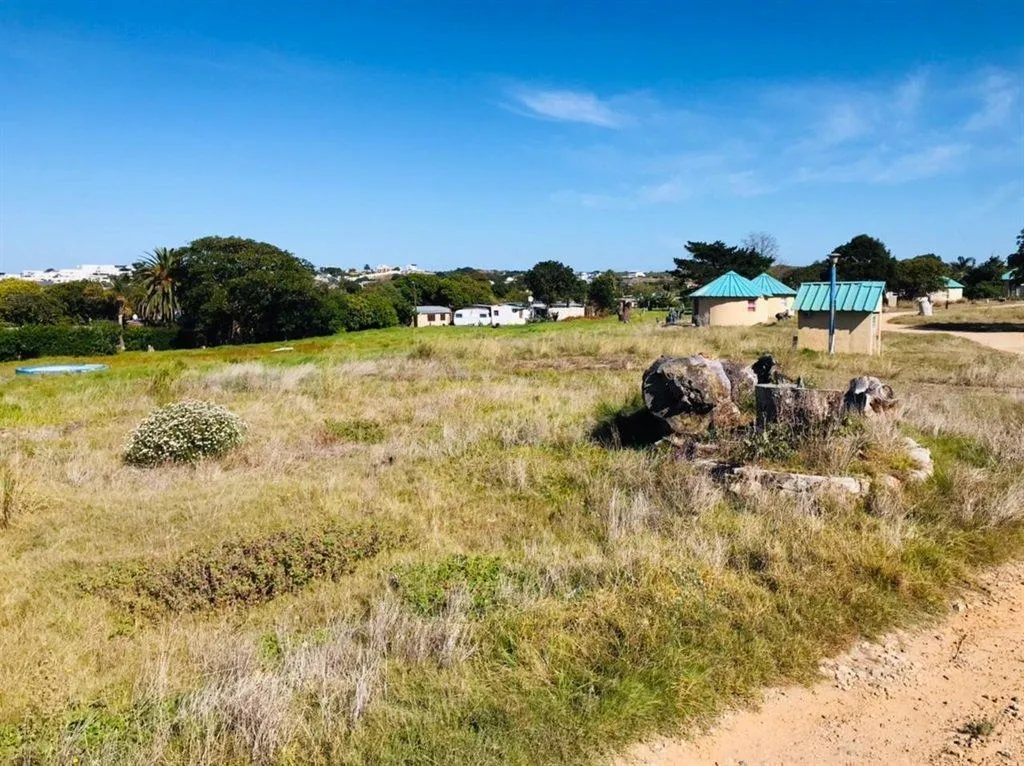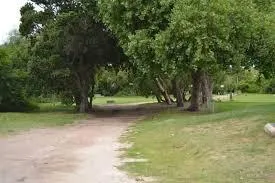

THE REAL STORY OF PARADISE PARK
A HIGH COURT RULING
THE REAL STORY OF PARADISE PARK
A HIGH COURT RULING
With so many stories doing the rounds on the sensitive topic of Paradise Park, the recent High Court judgement sheds light on the eviction matter between occupants and previous owner Mr Schonegevel, and for the past 5 years, owning enterprise Magna Business Services (Pty) Ltd t/a Sable Cape.
On 20 April 2022 the Western Cape High Court handed down a 45 page written judgement on the matter. Upon perusing the judgement, it becomes clear and evident that the occupation of Paradise Park by approximately 285 households and the subsequent eviction matter had a long and intrigued history to it. The entire eviction court case spans over a period of almost 6 years, with evidence and argument, from both sides, being put forward to the court over a period of almost 4 years.
During this lengthy eviction dispute the Court ultimately had to examine the lawfulness of the residents’ occupation of Paradise Park. Their defences were, inter alia, based on various alleged verbal agreements between themselves and the late Mr Schonegevel. The occupation of the land in terms of the current zoning scheme and Municipal regulations was also extensively examined by the Court.
In order to understand the judgement handed down, it is important to have cognisance of the background and history of Paradise Park. It is well known that the Park began as a holiday resort and over time developed into a mostly informal, unregulated and illegal permanent and/or semi-permanent residence of approximately 285 households. The problems and major disputes began when Mr Schonegevel disputed increased municipal accounts in 2010, where 312 sewage connections were billed, instead of the previous year’s 2 connections. He eventually attempted to apply for rezoning to residential use, which the Municipality could not grant due to various reasons at the time, as well as the nature of the proposals put forward. The matter was eventually taken to the High Court which in 2012 culminated in an order against Mr Sconegevel, in terms of which he had to take extensive and extremely expensive measures to regularise Paradise Park.
Schonegevel could not afford the proposed changes that the Municipality required, which would cost more than R17 million at the time. In the interim, in an attempt to cover increasing expenses as he was now spending more than he was earning, he increased the rent in 2013. In response, occupants took him to the Rental Tribunal. The Rental Tribunal deemed the increase to be fair, yet the majority of the occupants, led by the PPHOA (Paradise Park Homeowners Association), refused to pay the increase. During the aforementioned eviction matter, the Western Cape High Court noted that it is clear from these background facts that the residents, in fact, started a rent boycott, which eventually had its own detrimental effects on their plight.




Mr Schonegevel could not afford to effect the required changes to the Park and with the pressure of a final written notice in 2015 to comply with the Court order of 2012, he had to cancel the lease agreements and give eviction notices to the residents. Some accepted it, but many did not. The current owner, upon the request of the Municipality, employed a social worker to ascertain the personal circumstances of the occupants and to establish whether some occupants would become homeless upon eviction. A significant amount of occupants would not cooperate. Numerous attempts were made to reach out to occupants, by the Municipality and the Department of Human Settlements, in an effort to address the potential housing crises. Later findings would prove that only a relatively small percentage of occupants could potentially need assistance. Taking a drive through the Park, one will see various luxury vehicles, boats and small businesses present in Paradise Park. It appears that a great deal of occupants are not being honest with regards to their ability to find alternative accommodation.
The Court also heard at the beginning of the eviction matter, that not all the structures in Paradise Park were permanently occupied. About 40 percent of the structures were purely there for recreation purposes and its residents were regarded as semi-permanent. In an act of defiance most of these semi-permanent structures were rented out to new occupants during the last two or three years, without them making any contribution to the Municipal services. A significant amount of the so-called permanently occupied structures also changed hands during the existence of the eviction court case, with residents selling it to new occupants or amongst themselves and then renting it out for their own financial gain. It therefore follows that the current composition of residents of Paradise Park involves a significantly large number of residents who have moved into the park long after the eviction matter had started, without the consent of the land owner and purely to benefit from the chaotic circumstances created by the residents themselves over many years. The Western Cape High Court specifically noted that it is inconceivable that the residents did not realise the risk of purchasing structures on plots in Paradise Park, the use of which were illegally permitted by the previous owner.
It’s also important to note that the Court further remarked that it was clear that Magna (Sable Cape) at various stages attempted to assist the occupants in an effort to come to a solution or some arrangement with them, but that such attempts were purposefully derailed by a group of influential occupants, who demonstrated a seriously irrational sense of entitlement to continue to occupy Paradise Park.
Mr Schonegevel passed away before he could testify in court. His daughter testified in July 2021, that due to the demands of the municipality and lack of funds, her father had to sell in 2017. She denied any verbal agreement of a 99-year lease. The occupants provided evidence by way of affidavits, as well as viva voce testimony. Magna (Sable Cape) filed extensive affidavits and reports with regards to the facts in this matter and also called upon an expert witness who testified about the negative ecological impact of Paradise Park, especially of the inadequate sewerage system, on the wetlands, salt lake and ecosystem. It should also be noted that a substantial portion of the current structures on Paradise Park were illegally erected directly on the wetland area.
After various delays in the matter, an extension for further submissions by way of affidavits was granted. The occupants went so far as to submit an application for the recusal of the judge, alleging bias in the matter. They also refused pro bono legal assistance, and wished to be represented by an attorney who failed to appear in court. This attorney stated he was not further mandated by the occupants and thus he withdrew as attorney.
A plethora of unfounded court applications, devoid of any merit and with no real prospect of success, were also brought during this eviction matter by the residents of Paradise Park, which not only escalated the litigation and duration of the matter, but also substantially increased the legal costs involved in this case. During this period the illegal occupants, instead of paying their levies and contributing to the municipal services and costs of maintaining the infrastructure at the Park, rather pooled their contributions to fund their collective litigation.

After considering all relevant facts placed before the court over almost 4 years of extensive litigation, the Court found that the residents and all occupiers currently occupying Paradise Park are doing so illegally, mainly due to the fact that the lease agreements with them were lawfully cancelled. In addition to this the court also found that their occupation was further unlawful as it was a flagrant breach of the Municipal Zoning scheme, and that it remains an offence.
The Court hearing the eviction matter, also specifically remarked in its judgement, that although it had some sympathy with the plight of some of the residents, that it was unfortunately clear that a great deal of the issues raised by the residents were as a result of their own making. Their unwillingness to co-operate with the Municipality and Western Cape Department of Human Settlements to secure an alternative was evident in this matter. The Court actually refers to certain residents who, in fact, have other property or houses elsewhere, but stubbornly elects to stay in Paradise Park.
The Court gave extensive consideration to the personal and socio-economic circumstances of the occupants. It should be noted that it was found that the circumstances of the residents differed vastly. The Court also noted and expressly remarked that the majority of occupants did not appear to want or need assistance, but rather sought to act in defiance and to their detriment.
The Municipality confirmed that it will provide assistance to those who would need housing (some occupants rely on SASSA money) and frail care. Those who need help, will be helped. Most are refusing elderly assistance and the three occupants who reached out to the Municipality, have been placed into frail care, with the help of the Western Cape Social Welfare.
The Municipality identified an alternative property for new homes to be built, and urged occupants to place their details on lists, which only 23 households did. Only 28 residents attended the meeting with the Municipality. They have requested homes to be equivalent to what they have now, to which the Municipality responded that they are not entitled to choose what they want and where.
One occupant was allocated a home in Hawston, which she now rents out. Another, after receiving the notice of eviction, used pension money to buy three more homes in Paradise Park which she lets out and says she is now financially dependent on the rental income derived from Paradise Park. Other occupants have homes elsewhere but say they cannot or do not want to relocate.

Sable Cape has spent millions on improvements and towards gaining temporary compliance. They are also currently being held liable for the municipal services of occupants, of which Paradise Park owes millions in arrears which occupants should have covered. Most residents did not pay their levies but rather used the money for their legal costs.
The crux of the matter is that the various lease agreements with the residents, whether it was a three year written agreement or verbal lease agreement, has either expired or been legally cancelled. It follows that a much longer notice had been provided, which means that the occupants have been residing in Paradise Park unlawfully for many years now. The Court also specifically found that occupants knew that the property was not zoned for permanent residential use, but defiantly continued to illegally occupy the land.
The Court granted an eviction order against all the residents and ordered them to vacate the Park within three months. The Municipality has requested this three month period to determine if occupants are eligible for housing assistance, which the judge has decided to be fair. Those who cannot find other accommodation need to apply for assistance from the Municipality within one month. The Municipality must report back to the court by affidavit, in terms of who will need assistance and how they will assist. A further counter application was made by occupants, which the judge has deemed unripe for hearing.
Higher Courts have repeatedly stated that the landowner cannot indefinitely house illegal occupants – the right to housing cannot be enforced on private landowners. The problem started with the unlawful residential occupation, on property that was not zoned for this purpose, and ill-advised investments were made. The fact of the matter is that the occupation of Paradise Park has been unlawful for many years and is an offence that cannot be endured at the cost of the environment and the current owners.
Sable Cape Developments is committed to keeping all stakeholders and residents of Hermanus informed.
If you wish to stay in touch, kindly fill in your details below:
Stay up to date
Send me the Court Order
Sable Cape Developments Copyright © 2026